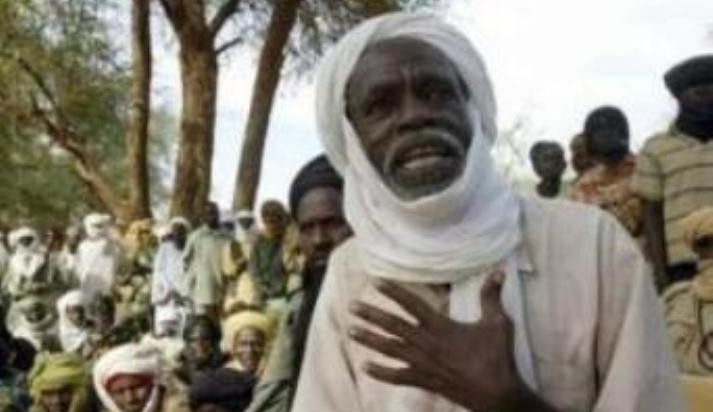Darfur rebel figure says he joined JEM to encourage rebels’ unity
April 5, 2009 (PARIS) — Darfur rebel veteran Suleiman Jamous said he decided to join the Justice and Equality Movement (JEM) to motivate the other rebel groups to reunite and leave aside their personal ambitions.

In a phone interview with Sudan Tribune, he underscored that he had dedicated all his time and efforts during two years since his release from Kadugli Hospital in South Kordofan for the reunification of the SLM groups “because our divisions are detrimental to the cause of Darfur.”
Established in the nineties by Abdel Wahid Al-Nur, the SLM launched the first rebellion in Darfur in February 2003, gathering people from the different tribes and ethnic groups. However, Minni Minnawi, then the group’s military leader, splintered from the biggest SLM movement in October 2005 opening the door for more divisions.
In May 2006 Minnawi signed the Darfur Peace Agreement (DPA) in Abuja, which had been rejected by the two other leaders, Al-Nur and Khalil Ibrahim. After the Abuja deal, Minnawi imprisoned Jamous and also his group witnessed many defections that led to the creation of new factions.
In early 2007, Abdellah Yahia, a young rebel commander, succeeded in reuniting many commanders who had defected from Minnawi and established the SLM-Unity. After his release Jamous joined Yahia and provided his group some authoritative political support. However, his arrival bothered some other leading commanders and politicians who had been used to influencing Yahia’s decisions.
Meanwhile, a Libyan initiative to broker reunification between the SLM-Unity and other factions seems to have pushed Jamous into joining JEM; he had criticized neighboring countries for negative interference in the conflict and was concerned about power struggling among SLM factions.
“I had advised our brother Abdellah Yahia not to take part in the unity meeting organized by Libya,” Jamous said, speaking about a common-ground gathering held in Libya on March 15 where the SLM-Unity, the United Resistance Front (URF), the SLM led by Khamis Abdallah Abakr, the JEM-Idris Azraq faction, and the SLM-Juba faction agreed to join the Doha peace process as one delegation.
The rebel veteran argued that such meetings are useless because most of the parties involved in the process have no impact on the ground and they are “trading with the cause of Darfur people.” He further added that “we should seek unity with the groups that have real existence on the ground.”
“What happened in Tripoli is a repetition of what had happened in Juba last year,” he added alluding to the UN attempts to reunite small groups in Juba last year.
Suleiman further disclosed that some in the SLM think “I seek the presidency of the movement but these are baseless allegations. I want to prove to them that unity must be above such personal ambitions and my goal is higher than that because with divisions we are harming the cause of Darfur people.”
He stressed he never held a gun to fight during his whole life, and feels the only thing he can do is to narrow the gaps between the different groups because even if a peace deal is signed with all the existing groups, “they would start fighting against each other in the future,” he underlined.
Speaking about his merger with JEM, the rebel said he had relentlessly contacted all the SLM factions to tackle the unity issue, “but I found they were not serious, even some of them rejected to meet me.” However he praised “JEM’s readiness for dialogue on unity and ability to agree on common ground with the others.”
Jamous stressed that he and forces that followed him are now part and parcel of JEM, adding that unity is the first step to reach a comprehensive and lasting political solution of the six year conflict.
Since the beginning of this year and particularly in the Doha process, some eight small groups announced their merger with JEM.
Besides Jamous’ group, there were other SLM factions that merged with JEM. These factions are led by: Adam Ali Shoggar, Dafalla Almalik Bakheit, Siddaig Massalit, Abdel Salam Ahmed Issa, Mansour Araba, Arko Dahiya Bakheit Dabajo and Osman Ishaq Arabi.
JEM, which had signed last February a goodwill agreement with the Sudanese government in order to negotiate a peaceful solution for the conflict in Darfur, suspended recently its participation in the Doha process to protest the expulsion of 13 aid groups that had ensured vital humanitarian activities to some 2.7 displaced persons in the troubled region.
While Khartoum accuses the foreign NGOs of cooperation with the International Criminal Court, JEM says the eviction of aid groups breaches the Doha agreement that provided for facilitating humanitarian action in the region.
With the recent merger of SLM factions, JEM is seen as the biggest military group on the ground. However, a news service close to the Sudanese intelligence service reported last week that Chadian rebels are preparing to attack Um Jrais in eastern Chad near the Sudanese border, where JEM is alleged to have its headquarters.
JEM rebels also warned before and after the ICC arrest warrant against Bashir they plan to attack government positions to overthrow the “wanted president.”
(ST)
